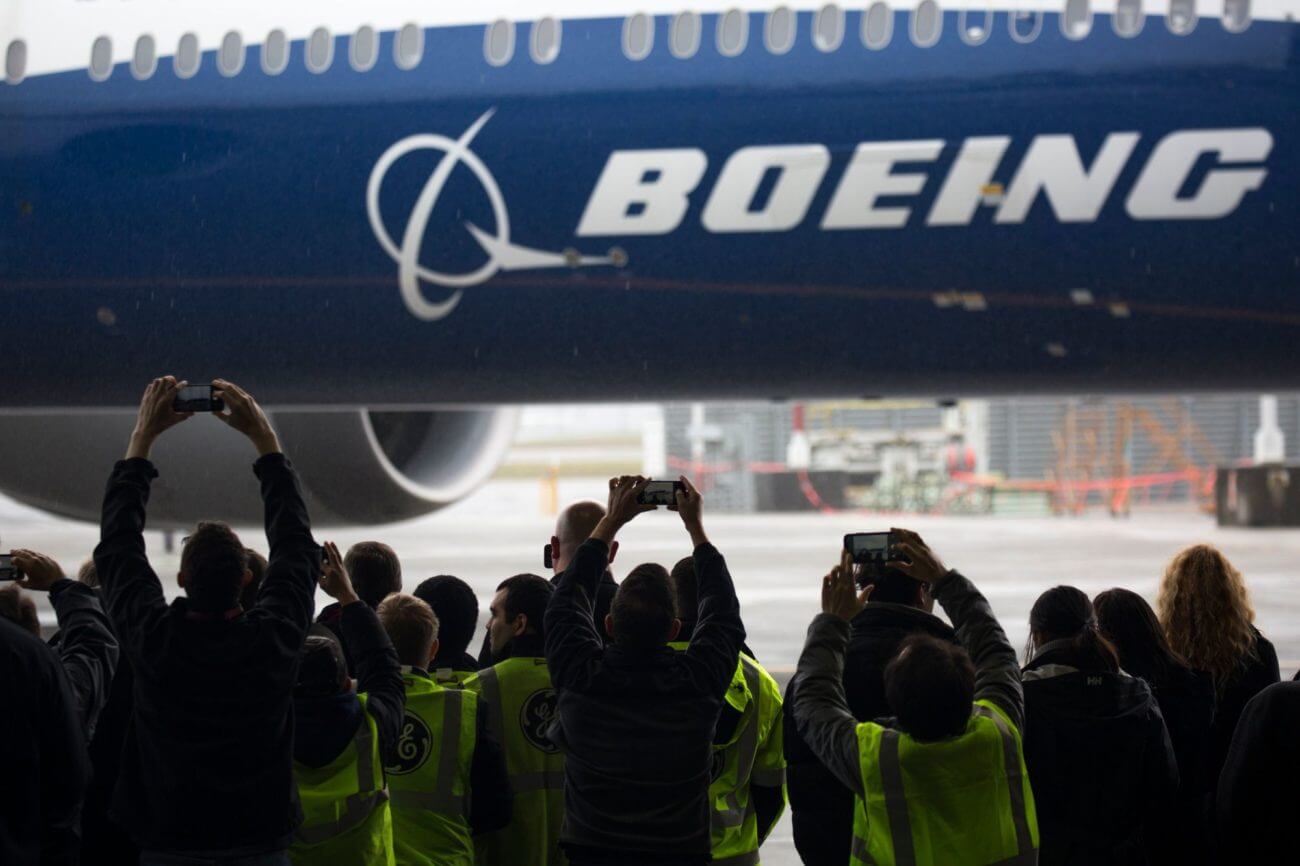
Boeing’s virtue signaling to the U.S. government is probably designed to compel lawmakers to bail out the struggling aircraft maker. | Image: Jason Redmond / AFP
- Boeing announced a voluntary layoff scheme for its employees, who would receive pay and benefits.
- The scheme is effectively a favor to the U.S. government, which will have to pay less in unemployment benefit as a result.
- Boeing wants the U.S. government to provide a specific bailout for it and the aerospace industry.
Boeing is trying to butter up the U.S. government. On Thursday, the embattled aerospace company announced a voluntary layoff plan for its employees. While seemingly generous, this plan is mostly a cynical ploy to persuade the government to bail it out.
Boeing posted an annual loss in January of $19 billion, its first in 20 years. And with the coronavirus pandemic decimating air travel, its fortunes have only worsened.
As a result, it’s in danger of collapsing. It has already begged the government for a $60 billion bailout. And with today’s voluntary redundancy plan, it’s hoping that reducing America’s unemployment burden will charm the U.S. government into finally saving its skin.
Boeing Is Being Cynical
According to a memo posted by CEO Dave Calhoun, eligible employees who want to leave Boeing will be offered a pay and benefits package. As Calhoun wrote in the memo:
We’re in uncharted waters. We’re taking actions based on what we know today.
At first glance, the move is a sensible and conscientious one. However, helping its employees isn’t really Boeing’s main aim with the voluntary redundancy plan. It has an ulterior motive.
With America now facing 6.6 million unemployment claims, the social security burden falling on the U.S. government is massive. And it will only grow with each additional week and month spent in lockdown.
In such a context, Boeing thinks it can earn brownie points with the government. It currently employees around 150,000 people. By paying for the unemployment costs of laid off workers, it reduces the sizeable burden currently sitting on the government’s shoulders.
In other words, the layoff plan is a favor to the government. An indirect bribe, if you will.
Boeing’s Bailout
And what does it want in return for this “bribe”? Well, a billion-dollar bailout, of course.
On Mar. 18, Boeing asked the government for a bailout of at least $60 billion. This sum would be for the entire U.S. aerospace industry, but given that Boeing basically is the entire U.S. aerospace industry, you can assume that it would receive most of the funds.
Of course, the U.S. government hasn’t yet confirmed that it will be bailing out Boeing. The stimulus package passed into law last Friday does qualify Boeing for a $17 billion slice of the $2 trillion it sets aside. However, Boeing has said it doesn’t want this loan, since it would result in the government taking out a stake in the company.
Source: Twitter
Hence the need to lobby for something better. Last week, Boeing announced that its CEO and chairman would be forgoing pay. It also announced that it would be suspending its dividend payments, and extending a pause on share repurchasing.
These were symbolic gestures intended to please Congress and the White House. But with Thursday’s layoff benefits plan, it’s clear that Boeing also wanted to make a bigger gesture, to do something that would make the government’s job a little bit easier.
2019 Was Bad, 2020 Will Be Worse
Even before the coronavirus pandemic, there was already plenty of talk about whether Boeing was doomed.
Two fatal crashes caused it to halt production of its 737 Max airplanes in December.
Now, it’s facing the worldwide collapse in air travel. Reports revealed in March that it would be drawing down the full amount of a $13.8 billion loan it had secured in February.
Since then, it’s had its credit rating cut on numerous occasions to BBB. Why? Because it’s a failing company becoming increasingly incapable of repaying debts.
Source: Yahoo!
It therefore needs its own highly favorable bailout, which is why it’s trying to do favors for the U.S. government.
This article was edited by Sam Bourgi.
Now Watch: CCN TV
Last modified: April 2, 2020 4:39 PM UTC






